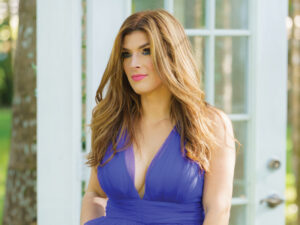Writing about Bad Bunny has become so common but so essential, to the point of being studied as a phenomenon in some university classes. Becoming, in less than 4 years, the most listened to artist in all languages and genres, being first in everything, for three consecutive years, is not "everyday bread." And even more so, when their music belongs to a very controversial genre, transcendently critical in the high intellectual spheres of music and at the center of justified feminism. Furthermore, the fact that he is named by TIME magazine as one of the 100 most influential people of the time deserves all of our attention.
And here we begin to deny the reality of its critics when the reggaeton genre, where Bad Bunny recreates itself, is heard by the 60% of listeners who use digital platforms; and of all these millions of listeners, 43% are women. Then the doubts arise that motivate expert studies, due to this irrational disposition: if reggaeton is not music and its lyrics are misogynistic, why is it what is heard the most and why do women go crazy with it?

And it is not that the world has become ignorant of music or "brutes", because they listen to and enjoy Bad Bunny in a nightclub to celebrate the success of the first presentation of a classical music concert; or misogynists, because an impulse of rhythm leads us to dance in a bar, until we are tired, “TITI ASKED ME if I had a girlfriend…”, for the acclaim of the staging of a play on Broadway, or end the day happily under the "flow" of his music after the presentation of a great book. Yes, they, the intellectuals, the scholars, also enjoy it.
The issue here is not Bad Bunny, there is no need to criticize him. He knew how to use the existing genre to his advantage. A reggaeton that was tepidly born in Panama in the 80's with the fusion of reggae brought by the Jamaican canal workers, and the Panamanian's obsession with translating its lyrics into Spanish, to later unleash, in Puerto Rico, the ability to mix it with rap and hip hop in Spanish. Today, their lyrics have evolved, they are less violent, and with the development of digitalization in music, their sounds are more plural.
The problem really is hypocrisy and the fear, with repudiation, of making what is intimate public. How many "intellectuals" who hate the "Bad Rabbit" have not mistreated their wives. How many "modest" conservatives have more than one hidden love for doing crazy things in bed that "they should not do with their wife." How many of us have not made sex crazy, anywhere, to justify love with pleasure. How many of us don't secretly smoke weed to relax from reality. It is hypocrisy, the fear of being public, the criticism of open expression, in total freedom.
Benito Antonio Martínez Ocasio is an artist, musician, composer, producer, professional wrestler, actor, and successful businessman. Benito is a 28-year-old young man who has managed to successfully lead the artistic career of Bad Bunny, his favorite character.
Oscar Arenas
Writer-Editor





